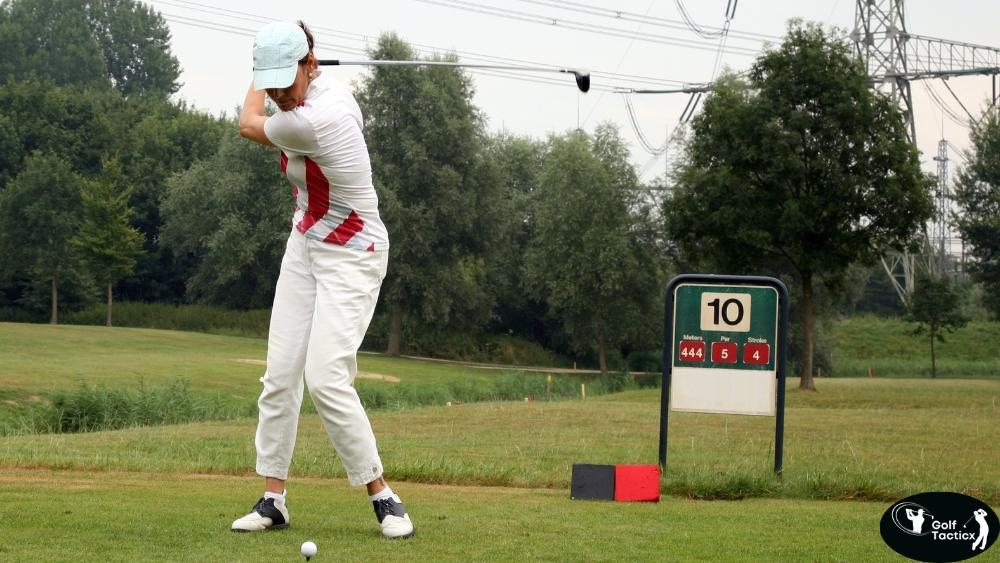In the previous post, we discussed How To Compete With Better Golfers, covering smart strategies and mindset shifts to help you stay confident and play your best.
Golf isn’t just a physical game it’s a mental battle too. Whether you’re playing match play or stroke play, your mindset can make a big difference in how well you perform. That’s why understanding Psychological Strategies For Match Play vs. Stroke Play is so important. Each format needs a different mental approach. In match play, you focus on beating your opponent one hole at a time.
But in stroke play, every shot matters, so staying calm and consistent is key. By learning the right Psychological Strategies For Match Play vs. Stroke Play, you can stay focused, handle pressure better, and play smarter golf.
This post will help you understand how to think during each format, how to stay confident, and how to bounce back from mistakes. With these tips, you’ll improve not just your swing but your mental game too.
Embrace the Format
Recognize that match play and stroke play are distinct formats, each with its own set of challenges and strategies. Embracing the specific demands of the format you’re playing can help you mentally prepare and perform better.
Manage Expectations
In stroke play, the cumulative score over 18 holes is crucial. Set realistic expectations for each round, focusing on playing your best without obsessing over the total score. This approach can reduce pressure and lead to better performance.
Tips to Manage Expectations in Stroke Play
- Break your round into 3-hole segments.
- Focus on process goals (e.g., solid contact, good alignment).
- Accept bogeys—avoid chasing perfection.
- Celebrate small victories like hitting fairways or greens.
| Round Expectations | Stroke Play Focus | Match Play Focus |
|---|---|---|
| Hole-by-hole goal | Maintain consistency | Win individual holes |
| Mental target | Keep total score in mind | Adapt to opponent moves |
| Score management | Avoid big numbers | Take smart risks |
Develop a Pre-Shot Routine
A consistent pre-shot routine helps maintain focus and reduces anxiety. Whether in match play or stroke play, having a routine can center your thoughts and prepare you for each shot.
Effective Pre-Shot Routine Components
- Choose your target with clarity.
- Visualize the ball flight.
- Take a practice swing with purpose.
- Breathe deeply to reset your focus.
| Benefit | How It Helps |
|---|---|
| Reduces anxiety | Keeps you mentally grounded under pressure |
| Builds consistency | Creates familiarity in unpredictable conditions |
| Improves focus | Redirects energy to execution instead of nerves |
Stay Present
Avoid dwelling on past mistakes or future outcomes. Concentrate on the current shot and the immediate task at hand. This mindfulness can enhance your performance and enjoyment of the game.
Ways to Stay Present During a Round
- Use a mantra like “One shot at a time.”
- Focus on your breathing between shots.
- Reset your mindset at each tee box.
- Avoid scoreboard watching in stroke play.
| Past vs. Present Thinking | Impact on Performance |
|---|---|
| Reliving past mistakes | Lowers confidence, increases tension |
| Worrying about future | Creates anxiety, distracts from execution |
| Staying in the moment | Boosts awareness, enhances shot quality |
Visualize Success
Before each shot, visualize a successful outcome. This positive imagery can boost confidence and improve execution.
Mental imagery can act as a rehearsal for your brain. In both formats, imagine the swing, the flight, and the target. This not only builds confidence but reduces hesitation. For example, if you’re playing a par 3 over water, visualize the ball landing safely on the green instead of focusing on the hazard.
Manage Pressure
Both formats can be stressful, but match play often involves more head-to-head pressure. Develop techniques to manage stress, such as deep breathing or positive self-talk, to maintain composure during critical moments.
Recognizing that pressure is a normal part of golf helps reduce its intensity. In match play, pressure can arise quickly if your opponent hits an exceptional shot. Rather than reacting emotionally, stay focused on your own process. In stroke play, pressure builds gradually especially on the back nine.
Learn from Each Round
After each round, reflect on your mental game. Identify what worked well and areas for improvement. This self-awareness can lead to better mental preparation in future rounds.
Create a simple post-round journal. Write down three things that went well and one mental habit to improve. Over time, this will build your personal library of psychological tools.
Conclusion
Our mental game is just as important as your physical skills. Knowing the right Psychological Strategies For Match Play vs. Stroke Play can give you an edge over your competitors. Whether you’re focused on each hole in match play or aiming for the lowest total score in stroke play, staying calm, confident, and focused will help you perform your best.
By practicing these mental strategies, you’ll handle pressure better, make smarter decisions, and enjoy the game more. Remember, mastering the mental side of golf is a key step to becoming a stronger player in any format.
Stay tuned for our next blog post, where we’ll discuss the key differences between elite amateurs and professional golfers.
















Leave a Reply